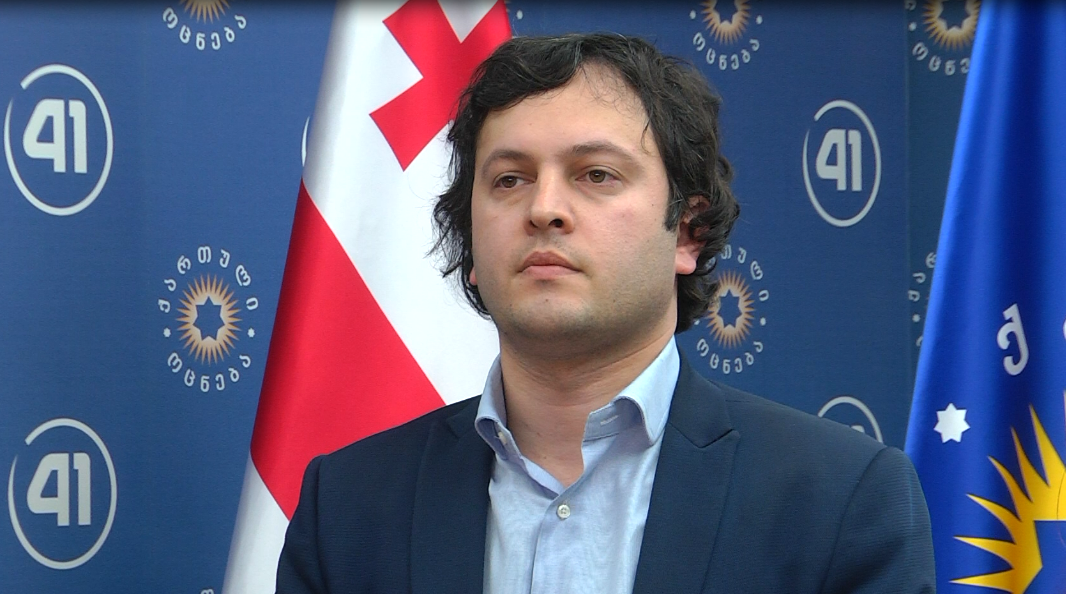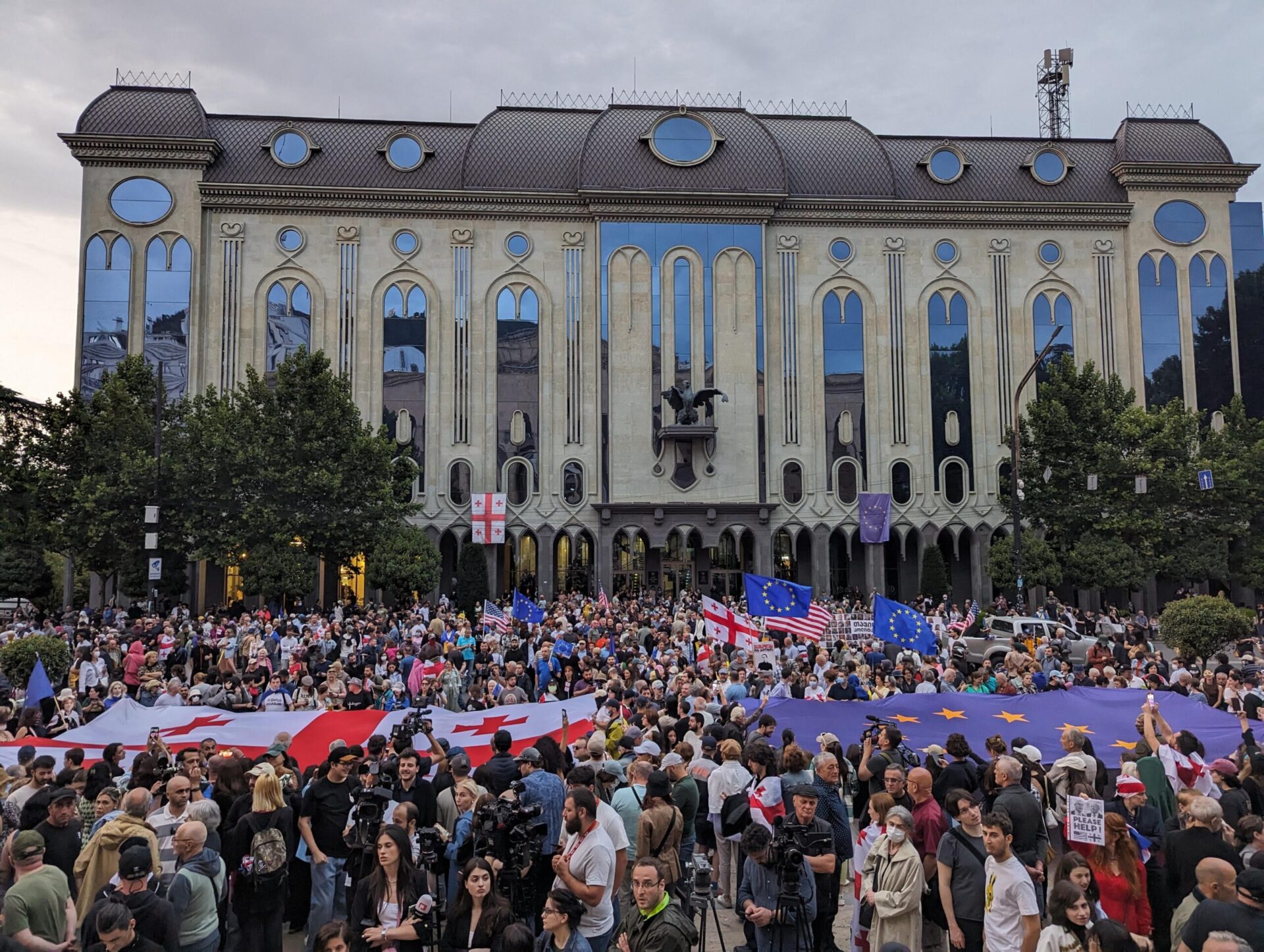
Constitutional Debate Rages on in Georgia
Constitutional Debate Rages on in Georgia
On June 8, Georgia’s months-long, contentious constitutional reform debate took a new turn when the Georgian parliamentary speaker, Irakli Kobakhidze, declared that the ruling Georgian Dream (GD) party would no longer include in the new constitution a clause legally enabling foreign citizens and entities to purchase agricultural land in Georgia (Netgazeti.ge, June 8; Civil Georgia, June 9). This particular clause had been the cause of much controversy among Georgian political parties and the public in general. Some political groups argued that banning the sale of agricultural land would discourage foreign businesses from investing money in the country, which would negatively affect the Georgian agricultural sector’s already dismal production output. On the other hand, the wider Georgian public fiercely opposed the clause, mainly on the grounds that for a small country such as Georgia, its land resources are too scarce to sell to foreign citizens (Channel One, May 22; Liberali.ge, May 7, 2013).
During this debate, the Georgian political classes showed little creativity for coming up with a workable solution. Specifically, the issue became a zero-sum game, whereby the clause about the sale of land could either be included in the proposed amendments to the constitution or left out. Political groups simply failed to explore other options, such as for instance the possibility of leasing (instead of selling) land, which, on the one hand, would allow foreign citizens to start businesses in the country and attract investments, and on the other hand, would address the Georgian public’s fears. Ultimately, however, GD fully sided with the opponents to foreign land sales.
However, the land issue is not the only big subject in the new constitution. Another highly controversial matter is the question of the country’s electoral system. Specifically, Georgia currently has a mixed proportional and majoritarian system, according to which half of the parliament is elected through proportional party lists and the other half through majoritarian, single-mandate constituencies. The new constitution would scrap this system, in favor of purely proportional party lists (On.ge, May 1).
Such an electoral system works quite effectively in many Western democracies with sophisticated and well-developed political party systems. However, the problem with Georgia is that the country lacks well-established, institutionally developed parties. Political parties in Georgia resemble small, semi-feudal clans, which lack most basic party infrastructure, such as extensive networks of regional branches and financial resources, not to mention qualified political cadres and elaborate political programs. Parties largely revolve around the whims of their chief or founder—usually a disgruntled former high ranking government official or a wealthy businessman—who established his or her party as a vehicle to gain power. By switching to a proportional electoral system, the ruling GD seems to be attempting to further consolidate power in parliament, making it impossible for its members to gain seats in the legislature independently or to later defect, thus forcefully attaching them even closer to the party leadership.
The proposed new electoral system is also skewed in favor of bigger parties, and particularly in favor of the ruling GD. In fact, the new system would make it nearly impossible for small parties to enter the legislature, as under the proposed amended constitution, parties would no longer be allowed to form electoral blocs. Moreover, if a party fails to garner at least 5 percent of the vote nationwide, it would not only be prevented from entering the legislature (as is the case already) but, most importantly, all of its popular votes would go to the party that won with most votes. This strikingly differs from the current rule, whereby the votes cast for such a losing party are distributed to all the parties in the general electoral race that successfully overcame the 5 percent threshold (On.ge, May 1; Civil Georgia, May 3). Needless to say, such a constitutional rule change would help keep GD in power, even if it falls far short of garnering an outright majority of votes cast in the 2020 parliamentary elections.
The third controversy involves the election of a president. Currently, Georgia elects a head of state (with largely nominal powers) by direct popular vote. The new constitution would change this rule. Instead, a president would be chosen by 300 “electors”—150 members of the parliament and 150 representatives of regional municipalities. Once again, the new rule would give the ruling GD overwhelming latitude to handpick its loyal candidate in the next parliament. GD pointedly dismisses the opposition’s concerns on this matter (see EDM, March 30).
In order to take the discussion of constitutional reforms out of the hands of the country’s political classes and, at the same time, to give the new proposed constitution some sense of popular legitimacy, Georgian Dream went on a regional tour, holding large town hall meetings across the country’s various regions. However, these town halls often took on a tragicomic character, as many ordinary citizens, unversed in the legal nuances of the constitutional debate, engaged in outright praise or condemnation of the government about topics entirely unrelated to the constitution. Some critics even went so far as to compare these meetings to Bolshevik public gatherings of the 1920s and 1930s, when all decisions were foregone conclusions of the Bolshevik Party (Rustavi 2 TV, May 2–18).
After winning the October 2016 elections, Georgian Dream quickly consolidated power and started preparing for the 2020 elections. One of its strategies has apparently been to adopt a new constitution explicitly favorable to the ruling party. In this sense, GD continues in the tradition of previous Georgian ruling parties and regimes, which all also tried to tailor the country’s constitution to their own needs. Even though the GD’s constitution has not been adopted yet, it is already raising serious questions about its legitimacy and political validity. Moreover, GD evidently has failed to understand that, historically, every Georgian regime that tried to tinker with the constitution to strengthen its hold on power unintentionally achieved the opposite effect and suffered the negative political consequences of an altered constitution under the next regime. Perhaps, GD will realize this soon. But so far, there is no sign of that.


